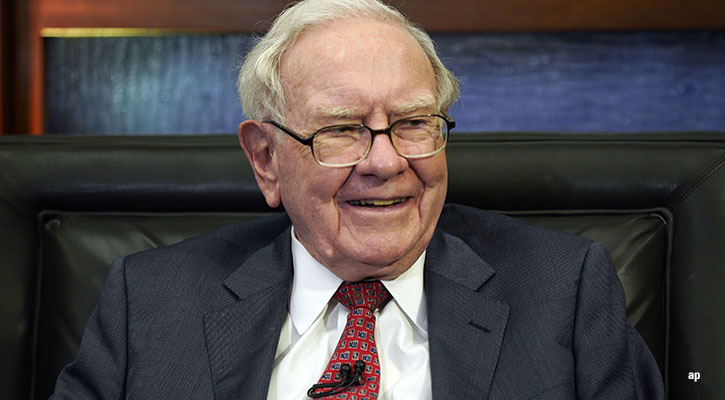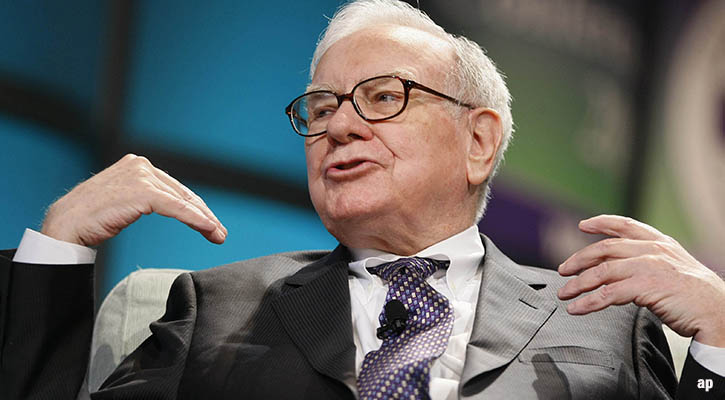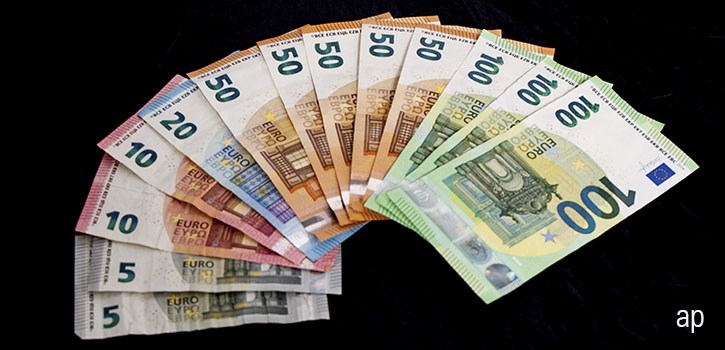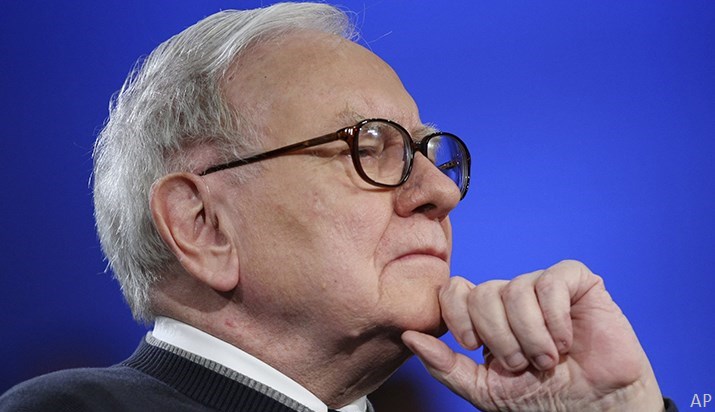
Berkshire Hathaway chairman Warren Buffett released his annual letter to shareholders, along with the company’s 2023 earnings, on February 24.
This is Buffett’s first shareholder letter since the death of longtime investment partner Charlie Munger in late November 2023.
As in prior years, Buffett’s 2023 shareholder letter is less about “what’s new” and more about offering investors useful reminders about how to invest successfully – expressed in Buffett’s unique, folksy way. Yet there are some notable comments in this year’s letter about whether Berkshire will pay a dividend, who Buffett’s successor will be, and which stocks Buffett expects to be long-term holdings.
Warren Buffett on Charlie Munger: ‘The Architect’
In a separate note to readers before the shareholder letter begins, Buffett pays tribute to Munger. Long credited for pivoting Buffett (and subsequently Berkshire) toward quality companies, Buffett calls Munger the “architect” of present Berkshire, with Buffett acting as the “general contractor” who carried out Munger’s vision.
According to Buffett, Munger told him in 1965:
“Warren, forget about ever buying another company like Berkshire. But now that you control Berkshire, add to it wonderful businesses purchased at fair prices and give up buying fair businesses at wonderful prices. In other words, abandon everything you learned from your hero, Ben Graham. It works but only when practiced at small scale.”
Buffett on How to Invest
Plenty of ink has been spilled from the pens of the financial press about how to invest like Warren Buffett. But there’s nothing like hearing an annual reminder from the Oracle of Omaha himself about how to build a portfolio to last. Such reminders are especially useful in today’s market climate.
Observes Buffett:
“Though the stock market is massively larger than it was in our early days, today’s active participants are neither more emotionally stable nor better taught than when I was in school. For whatever reasons, markets now exhibit far more casino-like behavior than they did when I was young. The casino now resides in many homes and daily tempts the occupants.”
Buffett’s new letter reiterates some of the things that have made Berkshire so successful over time, including:
• Have a clarity of purpose when investing
• Focus on quality investments, or in Buffett’s words, “wonderful businesses.”
• Favour companies run by good managers.
• Hold on for the long term, as “patience pays”.
• Practice “fiscal conservatism.”
Warren Buffett Won’t Sell These Stocks
Buffett talked in last year’s letter about two stocks “that leave us comfortable” and that he expects Berkshire Hathaway to own indefinitely: Coca-Cola (KO) and American Express (AXP). And not surprisingly, Berkshire maintained its positions in these stocks in 2023. “When you find a truly wonderful business, stick with it,” he writes this year. “Patience pays, and one wonderful business can offset the many mediocre decisions that are inevitable.”
This year, Buffett highlights two other “Rip Van Winkle” investments he expects Berkshire to own indefinitely, both of which the firm added to in 2023.
The first Buffett stock for the long term is Occidental Petroleum (OXY). Berkshire owned 27.8% of the company’s stock at the end of 2023 and also owns warrants that will allow Berkshire to increase its stake if it so chooses at a fixed price. As Buffett has stated before, Berkshire has no interest in owning Occidental outright. Rather, Berkshire likes the company’s vast oil and gas holdings in the United States and its leadership in carbon-capture initiatives.
The second investment Buffett expects Berkshire to own indefinitely is the firm’s stake in five large Japanese financial conglomerates: Itochu, Marubeni, Mitsubishi, Mitsui, and Sumitomo. Berkshire now owns about 9% of each company, says Buffett, and has pledged not to take its ownership stakes above 9.9%. The managers of these companies run their firms like the team runs Berkshire, following what Buffett calls “shareholder-friendly policies that are much superior to those customarily practiced in the US.” To that end, these firms repurchase shares when the price is right, retain cash flow to build their businesses, and pay their executives reasonably rather than excessively. Lastly, Buffett suggests that Berkshire’s investments in these five Japanese firms “may lead to opportunities for us to partner around the world.”
Can Berkshire Hathaway Outperform?
Buffett’s latest letter also addresses, in some cases, subtly, some frequently asked questions about Berkshire Hathaway.
One of those questions is: at its current size, can Berkshire Hathaway possibly outperform at the rate that it did in the past?
Buffett admits:
“There remains only a handful of companies in this country capable of truly moving the needle at Berkshire, and they have been endlessly picked over by us and by others. Some we can value; some we can’t. And, if we can, they have to be attractively priced. Outside the U.S., there are essentially no candidates that are meaningful options for capital deployment at Berkshire. All in all, we have no possibility of eye-popping performance.”
What should investors expect from Berkshire? That it’ll do slightly better than the average company, says Buffett.
When Will Berkshire Hathaway Invest Its Cash Pile?
Another common question about Berkshire is when it will invest its sizeable cash hoard.
Buffett acknowledges that Berkshire holds cash and Treasury bills “far in excess of what conventional wisdom deems necessary.” Part of the reason for the significant cash pile is, of course, because there aren’t enough attractively priced opportunities among the types of businesses that Berkshire likes.
Other factors are at play, though, too; Berkshire practices what Buffett calls “extreme fiscal conservatism”; Buffett compares the sizeable cash position to “an insurance policy on a fortress-like building thought to be fireproof.” Buffett plans to safeguard the savings that have been entrusted to Berkshire and not expose those savings to any permanent loss of capital. Cash naturally plays an important role in that strategy.
But the cash stockpile also ties into a theme that isn’t talked about quite as much: Berkshire’s goal to be an asset to the United States when financial fires need extinguishing, as they did in 2008-09 when Berkshire invested in Goldman Sachs during the global financial crisis or, a few years later, when Berkshire “saved” Bank of America. Given this mindset, it’s hard to imagine a time when cash will not be king at Berkshire.
Will Berkshire Hathaway Pay a Dividend?
Related to the cash question is whether Berkshire will begin to return some of that cash to shareholders in the form of dividends.
Buffett gives no indication that a dividend is forthcoming, but he doesn’t close the door entirely on the idea, stating, “Berkshire does not currently pay dividends, and its share repurchases are 100% discretionary.”
Morningstar strategist Greggory Warren, who covers Berkshire Hathaway, thinks it is unlikely that Berkshire will pay a dividend while Buffett is still calling the shots. Says Morningstar’s Warren:
“He doesn’t like to give away something and not get something in return. And I think the other thing is that I think he still wants to leave that as a tool for the next guys. Because they’re going to have to have something to sort of placate longer-term investors to convince them to continue to stay with the firm, while they figure out how best to handle capital allocation over the long run.”
Who Will Succeed Warren Buffett?
Berkshire followers have long assumed that Greg Abel, who manages Berkshire’s noninsurance operations, is Buffett’s heir apparent. Buffett all but confirmed that thinking, noting in this year’s shareholder letter that Abel “in all aspects is ready to be CEO of Berkshire tomorrow.”
Investors may hear more about that during Berkshire Hathaway’s annual meeting on Saturday, May 4, in Omaha.




















